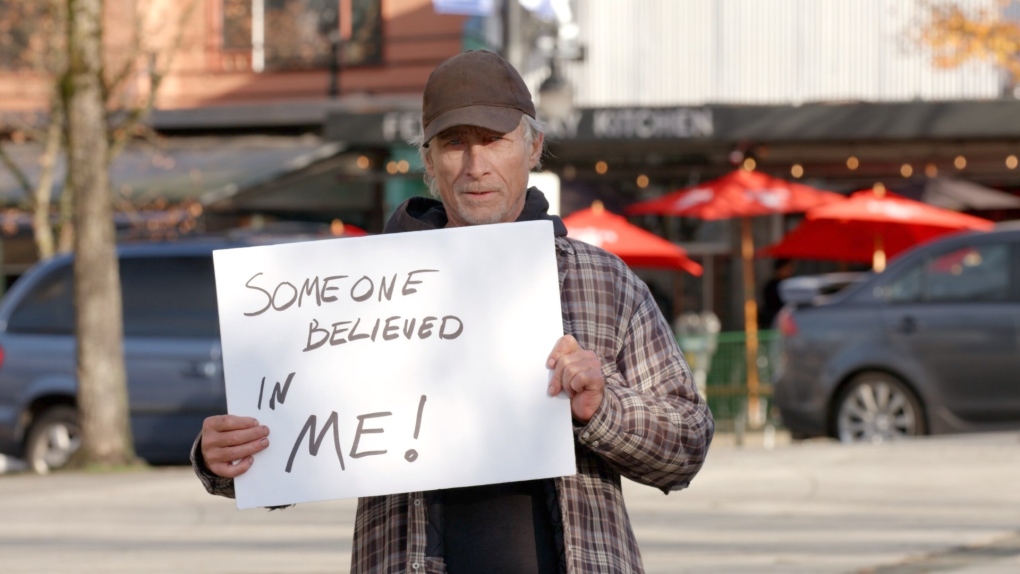No reason not to do this across the board
deleted by creator
Switzerland has this policy since the beginning of the 90’s with drug users. The quality of life improved to a level that retirement homes prescribe opioid to some resident.
It’s an amazing win-win-win situation. The overdose rate plunged with people being in a good health condition and finding jobs despite their addiction. The life expectancy of this group is sky rocketing. It costs a fraction to the society as people are contributing to the society itself.
Switzerland is concervative in some part of the country. It’s not like the US but the country has a division based on countryside and cities, cities being more liberal.
What made a change in the policy is that Switzerland had at the end of the 80’s the first and the second most important open scene in Europe. People came from all the country and even further to use drugs mostly opioid. People were using next to the Federal palace, home of the Parlament.
They had to do something and decided to have a liberal, progressive policy to help people instead of criminalizing.
But, we have multiple parameters to take in account. The first, it was at the end of the 80’s and the beginning of the 90’s. The population composition was different at this time. If you were not swiss, the chance to be deported was high.
Another factor is cultural. In the swiss culture, powerty doesn’t exist. People are wealthy. The really is different so Switzerland literally hides the poor and powerty. It’s similar to put everything under the carpet so everything is nice from the outside. The fact to see in parks and the nearby streets drug users day and night wasn’t a good think. The liberal policy match’s the fact that powerty has to be hidden.
It’s not only to be good or to do something good. Switzerland did horrible thing for the same reason like deporting children of poor families or single parent.
If people have an interest on the topic, I share two albums on imgur to see how it looked like. Both are NSFW!
Open scene in Bern, it was the second most important in Europe.
The open scene in Zürich was the most important across Europe.
Thank you for this, it’s very interesting to hear more details about how this was handled over there. In the US we tend to either have a very idealistic view (liberals) or very negative view (conservative) of Euro and Nordic countries’ social policies. No country is perfect, but I guess if the outcome has worked well then we can’t fault it even if the reason was to maintain their image by hiding poverty.
No problems! People like to view the swiss policy with drugs as an example. Sure the implementation works, Bern was the first city with a protected space for drug use. It was a game changer and progressive for the time.
But, the reality is more mixed. The intentions were not so nice. People matter but the image of the country and the streets was another part. After the adoption of this policy, the city of Bern became a left city. Zürich has a similar path. It was not a leftist thing.
It workwd for the last 30 years. But, Switzerland has to be careful and work on it to keep the leadership it acquired.
Regardless, it is an important study to disspell stigmas that have existed since the beginning of private property.
But it is still important when it comes to housing. This argument of homeless people being untrustworthy with money has undoubtedly already worked it’s way into that debate. If people won’t trust them with money, why would they trust them with an apartment? Canada and the US don’t see them as “worthy” or responsible enough to be given anything, not even food. Look at what an insane process it is just to apply for food stamps in the US, and that applies to low income folks as well as homeless people. Everyone is considered a criminal until they can prove otherwise, and they’re rarely given that chance
Not that I think academic research will make much of an impact. Research from the social sciences consistently debunks all kinds of common, harmful beliefs, and yet is still often ignored by policy makers and average people. It’s depressing as fuck that there are academic researchers spending years on studies like this, convincing people to fund them, getting paid dick by their universities, and still a bunch of assholes who have never set foot on a college campus get to just cut it down by saying “oh, well, that’s what I heard.” And then move on with their lives while homeless people continue to suffer for no reason. This is an example of the far reaching impacts of devaluing education I guess.
think of the landlords. if you give people free housing what will landlords do? you can’t expect them to contribute something!
deleted by creator
Die maybe? Get fucked? I’m okay with those options.
There have been studies which tried that too, there was one in the city I’m in where they gave free housing to homeless people but it didn’t go super well. IIRC the issue was that a fair few of them also had underlying addiction/mental health issues which kind of derailed things (one person set up a tent and started a camp fire in the living room, as an example.)
Not that I’m against giving money or homes to the homeless of course, but I think it also needs to go along with an investment in infrastructure and support for addiction, mental health and that sort of thing as well.
Also just to head off any pedantic replies: I’m also not saying that all homeless people are mentally ill or drug addicts, just that money and houses won’t solve everything, and we’d get a lot further with proper infrastructure underlying it in my opinion.
deleted by creator
I glanced over the actual study yesterday. Iirc, there was a control group of 65 who were studied on top of the other 50 who received the lump sum of cash. Both groups spent roughly similar amounts of stimulants such as alcohol and other drugs, despite the group receiving financial help obviously having access to more money. I think it makes more sense to think of the homeless’ spending on stimulants as just another need they have developed due to different circumstances on their lives. Would their finances be easier to manage if they didn’t have that spending? Sure, but very, very few people are going to be capable of overcoming an addiction on the short term when they structurally live under shit circumstances. Help them reach a minimum standard of living, then it’ll be easier for them to successfully go through therapy.
TL;DR: Just give homeless people money, they tend to understand their own circumstances well enough to know how they should spend it.
I think it’s be obvious that if you give a homeless person ten bucks, that’s not going to help them get out of homelessness, so of course it’s going to be spent on among their next day or so more tolerable in the form of mind altering substances.
Enough money to actually help and it starts getting spent on things that will improve their outlook on life.
Of course $7500 isn’t nearly enough for pulling someone out of homelessness.
To be honest, I think it’s far more efficient to give the homeless proper homes with locking doors and a respectable level of privacy as well as access to clean water and some sort of minimum level of food (like an infinite supply of rolled oats). It doesn’t need to be a big home, even something little better than a capsule hotel room would be enough.
The homeless stay homeless because nobody can pull themselves together if they’re constantly stressed trying to figure out how to even reach the next day. It’s even worse when you don’t have access to a shower to clean yourself up to be presentable enough to get through an interview at even the most unwanted jobs.
It’s the single biggest reason why mental illness is so rampant amongst the homeless and few ever repair their lives.
I absolutely agree. But I do think it’s interesting how there’s almost never any discussion of drug use and alcoholism among housed people, as though that’s not a social problem in itself. And imagine how much more severe the consequences are of people going to work fucked up, driving their cars, selling drugs in their dorms and getting kicked out of college, raising a family while trashed on xanax, and so on.
But when this happens, it’s an even more individualized matter than it is with homeless people. When we look at homeless folks, we individualize the blame and socialize the consequences (it’s the homeless person’s fault they’re homeless, but that’s fucking up our city etc). Somehow, we never consider the social repercussions of housed people with addictions, especially if they have an addiction to alcohol. Alcoholism can get pretty far in an “average” person’s life before anyone really steps in and sees it as a serious problem. Same with prescribed drugs, because they have some psychiatrists signature on them. Millions of people drink when they get home from work. But if we see a homebum with a 40, we first make a snap diagnosis, then widen our judgement to everyone whose ever been evicted or had to sleep in their car.
All I’m saying is that half the problem is ingrained social stigma, when they’re really not much different from the rest of us.
As a housed person, I’ve also spend roughly the same amount on alcohol and other drugs pretty consistently since the age of 25, regardless of changes in my income level.
Same for almost everyone else I know, whether above or below dependency levels.
Yep. That’s pretty much the result of otherization. “Well, this group significantly different from ourselves and their issues must be thought of as a social problem”, “but that has pretty much nothing to do with my neighbour though, he’s just got a little drinking problem”.
Yes, the article mentions the control group, too. What they don’t mention (and I’m curious about) is whether the savings figure quoted was gross or net? I’ll quote another comment in this post since I’m not sure how to properly link it.
Those who got the payment did not spend more money on “temptation goods,” spent 99 fewer days homeless, increased their savings and spent less time in shelters which “saved society” $777 per person, according to a news release from UBC.
“Is that gross or net savings? That is, is the $7500 included and there was a net savings, or was there a net cost of $6723?”
Any idea, from skimming the actual study?
https://www.pnas.org/doi/10.1073/pnas.2222103120
The societal cost of a shelter stay in Vancouver is estimated at $93 per night (6), so fewer nights in shelters generated a societal cost savings of $8,277. After accounting for the cost of the cash transfer, the reduced shelter use led to societal net savings of $777 per person a year.
Those who got the payment did not spend more money on “temptation goods,” spent 99 fewer days homeless, increased their savings and spent less time in shelters which “saved society” $777 per person, according to a news release from UBC.
Is that gross or net savings? That is, is the $7500 included and there was a net savings, or was there a net cost of $6723?
Seems to be net savings, quoting someone else :
The societal cost of a shelter stay in Vancouver is estimated at $93 per night (6), so fewer nights in shelters generated a societal cost savings of $8,277. After accounting for the cost of the cash transfer, the reduced shelter use led to societal net savings of $777 per person a year.
From the linked study:
generated societal net savings of $777 per recipient via reduced time in shelter
So giving them $7500 reduced shelter costs by $8277. I would guess the total “societal cost” reduction is even higher, due to the harder to calculate indirect costs; but those are difficult to validate.
Also, there’s 99 shelter days saved per person, $777 for that period would be incredible. If you’ve got a secret to run a shelter for < $8/bed/day, you’re going to solve homelessness and the housing shortage.
combined with idea of progressive property taxes: https://www.reuters.com/markets/deals/canadas-competition-bureau-ordered-pay-nearly-10-mln-rogers-shaw-2023-08-30/
tax high value properties and use money to help less privileged
I think you dropped the wrong link.
That one’s is Rogers whinging about having to pay lawyers to break competition regulations.
The problem with taxing High Value Property is what happens when Single Family Homes hit that value? If the value of my house skyrockets while I am living there then I can end up losing it do to a massive hike in my taxes.
I’d assume that as single-family homes rise in value other properties would too, so maybe the limit would just need to be adjusted fairly often? IDK I’m not a tax person.
OR, maybe it could just apply to additional properties? Like you get one free so a family home is safe, but every additional property you own gets a tax slapped on it or something like that?
I bring this up because California implemented Prop13 in 1978 to address similar issues and it had mixed results.
I agree with the idea of taxing secondary properties at a higher rate. But that could also have the unintended consequence of driving up rents and landlords look to recoup that money.
This might be related to amount of money given. People usually give something like 5 dollars and are surprised that a person doesn’t save, just spends on temporary pleasure.
What an awful website, popups and videos all over the sodding place. Great story, no content, the headline says all. I would call this feral clickbait. Like the idea though.
Here’s direct to the study instead: https://www.pnas.org/doi/10.1073/pnas.2222103120
Did they spend it all on rent?
Some also spent it on food and clothing.
Others saved some of it .
I heard they spent it all on tent.
… I’ll see myself out.








